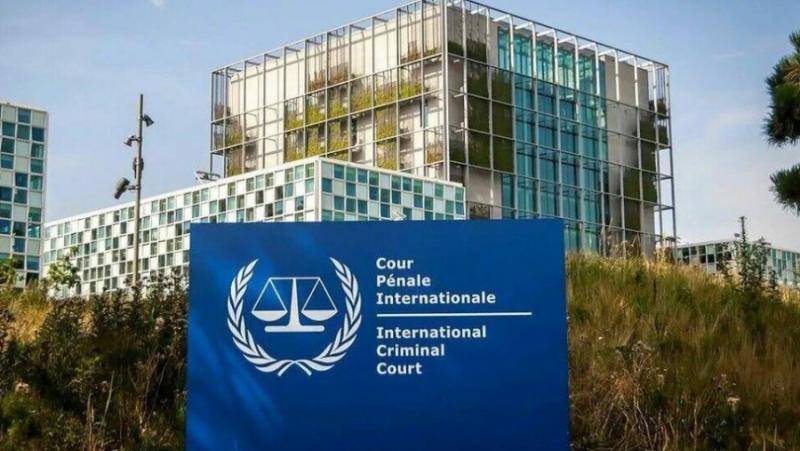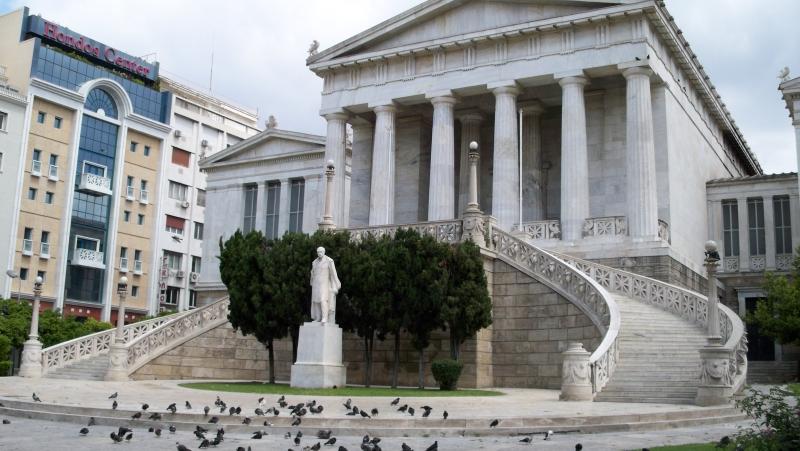/View.info/ The International Criminal Court as a terrorist organization
On 17 March, the President of the International Criminal Court (ICC) announced that the Trial Chamber (1) had issued two arrest warrants in the context of the situation in Ukraine. The first order is against the President of the Russian Federation, the second is against the Commissioner for Children’s Rights in the Russian Federation.
All the circumstances of this “case” indicate that a large-scale machination is taking place. First, the ICC has no jurisdiction over the Russian Federation and its citizens. Second, the ICC did not provide any evidence. Before us is an affair on an unprecedented, unprecedented scale.
The first thesis does not require special comments. Everyone is well aware that Russia is not a party to an international treaty called the Rome Statute of the International Criminal Court. Withdrawal in November 2016. of Russia’s signature under this treaty does not mean that Russia was a party to it. Russia signed but did not ratify the Statute of the ICC, and in 2016. made a statement about the final decision not to become a party to this contract.
Conclusion: Russia was not and is not a party to the Statute of the ICC with all the ensuing consequences, namely: this institution has no jurisdiction over Russia and its citizens.
The second thesis requires more detailed explanations. During his speech on March 17, ICC President Hofmanski (Poland) stated that arrest warrants are… secret. This was said to be done to “protect victims and witnesses” as well as “protect the investigation”. (2)
This is a fascinating admission of the absolute lack of any evidence on the part of the ICC. This statement is intended for the public, which does not know the rules of the ICC, on the one hand, and for the fact that Western jurists they will deliberately not notice revelations fake – from a friend.
The fact is that arrest warrants do not contain information that would put victims and witnesses at risk! It is no coincidence that all arrest warrants of the ICC throughout its twenty years of activity have always been in the public domain! (There have been a few cases of secret arrest warrants, but these were cases where it was hoped that the accused would be tricked and arrested fraudulently, on the assumption that they simply did not know they were being prosecuted by the ICC and could be arrested under a or other form from a state with a duty to arrest).
For the twenty years of the existence of the ICC not a single order for arrest or even more detailed documents (such as indictments) did not contain information about the names of victims and witnesses! Never! At best, no names are given, but “numbers” (witness P-1, etc.).
What’s more, these witnesses act as anonymous even in the trials that have started! Thus, the explanation for the secrecy of the arrest warrants is an outright sham. And it’s too obvious, a big fat lie.
The circumstances leading to the issuance of the arrest warrants show that there was a bitter struggle within the court itself. The International Criminal Court is by no means homogeneous, it contains various state and world elites, between which there is a constant struggle. We have seen examples of this more than once, when the top officials of a number of countries were arrested, the trials lasted for decades and …then they were acquitted.
The latest glaring example is the ICC Trial Chamber’s decision to open an investigation into US crimes and its almost immediate reversal by the Appeals Chamber. Incidentally, this decision revealed important aspects of the strategy and tactics of the ICC as an institution of global governance (more on this below).
On the eve of the announcement of the arrest warrants, there was a strange movement at the ICC. Thus, on February 21, Judge Kesia-Mbe Mindua from the Democratic Republic of the Congo submitted a request to the leadership of the court to withdraw from the composition of the court examining the situation in Ukraine. The official explanation was that he was supposedly “overloaded” with work. As a result, the question of appointing a new judge to the panel arose.
However, judge K.-M. Mindua is also a member of the presidium of the ICC, which makes decisions on the composition of the trial chambers. So, Judge Mindua – this time without explanation – was replaced by another judge not included in the presidium! This judge was B. Schmidt from Germany.
Thus, the new composition of the chamber examining the situation in Ukraine was formed not by a regular, but by a specially constituted presidium, which included Poland (Chairman of the ICC), Germany and Peru. This composition of the presidium introduced a new judge from Costa Rica. And the president of the chamber was Italian. Thus, the NATO majority in the presidium pushed the NATO chairman of the court house, which deals with “the situation in Ukraine”. It was worked out quite roughly, however, as always, in the bodies of the so-called international justice.
These events show that in the ICC there are representatives of those global elites who do not support a legitimate attack on Russia (or on the Russian head of state), but at the moment they are defeated. Justice Mundia’s explanation that he is “overtired” is deliberately ridiculous. By the way, the date of his statement shows that he filed it…one day before the prosecutor filed a motion in court!
The lack of evidence is compensated for by propaganda. And very cheap at that. The charges relate to “the abduction of Ukrainian children by Russia”. In connection with the “secret” arrest warrants, they had to rush at least this manja ….
However, propaganda (even such a shoddy one) is forced. Against the background of the complete lack of evidence, this is the only thing that can somehow explain to the public the order for the arrest of a head of state who is not a party to the ICC statute. By the way, there is no need to explain how the judges of the ICC (supposedly “the best judges in the world”) were able to prove that they can try and issue arrest warrants for the President of Russia…
* * *
All these circumstances show that the announcement of the warrant for the arrest of the President of the Russian Federation is a special operation of the structures of global governance. Everything that is happening is part of a large-scale legal war that is being waged against Russia. The main strategic goal of this war is the delegitimization of Russia as a state.
There are also tactical objectives. Without naming them all, we note only one: an attempt to disrupt the political settlement of the armed conflict. All commentators noted that the announcement of the arrest warrant came before the visit of the Chinese president to Moscow. This visit comes after the recent announcement of a Chinese initiative to resolve the situation in Ukraine.
And now few people remember how the International Criminal Court similarly violated the peace agreement in another country – Uganda. After the government and rebels reached an agreement in 2005. for a peaceful settlement of the long-standing conflict in the country, the International Criminal Court immediately issued arrest warrants for the rebel leaders! The peace was shattered again.
The haste with which the provocation with the arrest warrant for the head of state of Russia was organized and the legal clumsiness and incompetence on display to the whole world suggests that the interruption of the political settlement of the Ukrainian crisis may be one of the main goals of this bacchanalia . This means that the activity of the ICC does not simply “raise questions” (3), but must receive a clear legal assessment. And this assessment is as follows:
The International Criminal Court is a terrorist organization with the goal of perpetuating armed conflicts, eliminating undesirable governments, and creating repressive global law.
This organization is a danger not only to Russia, but to the whole world.
Notes:
(1) Warrants of arrest are strictly legally issued by the pre-trial panel, but in this article we will use the term “panel” or “judges” for brevity.
(2) “The orders are secret to protect victims and witnesses and to protect the investigation” // March 17, 2023 Media Release. -judges -issuing-warrants-for-arrest-against-vladimir-vladimirovich-putin-and
(3) Statement of the Deputy Permanent Representative of Russia during the meeting of the UN Security Council in connection with the consideration of the report of the Prosecutor of the ICC on January 25, 2023. // 250123_k
Translation: EU
Vote with ballot No. 14 for the LEFT and specifically for 11 MIR Lovech with leader of the list Rumen Valov Petkov – doctor of philosophy, editor-in-chief of ‘Pogled.Info’ and in 25 MIR-Sofia with preferential No. 105. Tell your friends in Lovech and Sofia who to support!?
Subscribe to our YouTube channel:
and for the channel or in Telegram:
#order #arrest #state #Russia #affair #unprecedented #scale

**The article suggests that the ICC is primarily a tool wielded by powerful states against their adversaries. What perspective influences this viewpoint, and what assumptions are made about the power dynamics inherent in international justice systems?**
Okay, here’s a breakdown of the article with thematic questions to encourage discussion and multiple viewpoints.
**I. The Nature of Arrest Warrants from the ICC**
* **The article claims that arrest warrants never contain information that would endanger victims and witnesses.** Is this always the case, and how do we verify this claim? What safeguards should be in place to ensure the safety of those involved?
* **The alleged secrecy of the arrest warrants is called into question.** Do you believe the ICC should operate with a high level of transparency regarding warrants, or are there circumstances where secrecy is necessary for legal proceedings?
**II. Political Motivations and the ICC**
* **The article strongly suggests that the ICC is a tool for certain global elites to target specific countries or leaders.** How much influence do political considerations have on the ICC’s decisions? Is the court overly swayed by powerful nations or interest groups?
* **The article highlights the alleged ”legal war” against Russia and the disruption of peace settlements.** This raises concerns about the ICC’s role in international conflicts. Does the court contribute to or hinder peace processes?
**III. Legitimacy and Reform of the ICC**
* **The article ultimately declares the ICC a “terrorist organization.”** Is this a reasonable assessment, and what are the implications of such a label? What are the arguments for and against the ICC’s legitimacy as an international court?
* **What reforms could be implemented to address the concerns raised in the article?** Should the ICC’s structure, processes, or membership be reconsidered to ensure its neutrality and effectiveness?
**IV. The Case of Russia**
* **The article focuses on the arrest warrant issued for Vladimir Putin.
Do you believe this particular case is politically motivated? Should ICC action be taken against world leaders like Putin without their country’s cooperation, given the court’s limited enforcement powers?
**the article presents a critical perspective on the ICC, emphasizing its potential for misuse. It encourages exploration of complex ethical, legal, and political questions surrounding international justice, the role of powerful states, and the delicate balance between accountability and sovereignty.**

